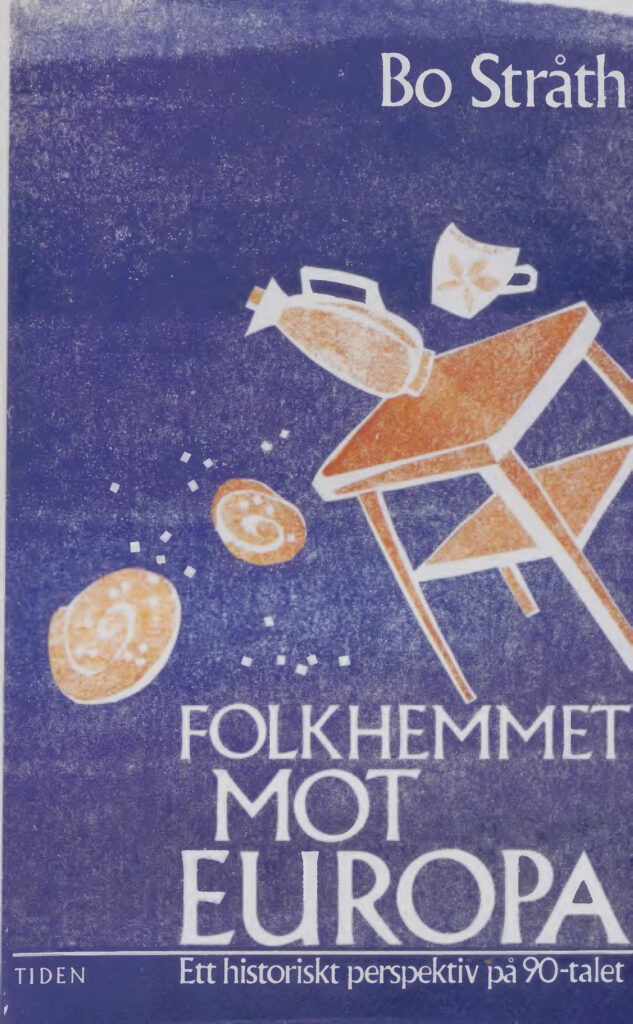Ett historiskt perspektiv på 90-talet

Folkhemmet mot Europa: Ett historiskt perspektiv på 90-talet. Tiden, Stockholm 1993. 352 pp.
Abstract
The vision of the Swedish folkhemmet, “people’s home”, and the concept of neutrality have characterised Swedish political culture for half a century. Using these elements, Sweden performed a balancing act between the threats and opportunities of international forces. In the autumn of 1990, this balancing act came to an end. The Swedish “people’s home”, which had perceived itself since the 1930s as separate from Europe, suddenly turned to Europe with the government’s declaration that it would apply for membership in the European Community. This book analyses the underlying context of this shift.
For decades the Social Democratic government had argued that EC membership was incompatible with the neutrality policy. The question is discussed here from a long historical perspective; the emergence of the neutrality doctrine is analysed in an attempt to go beyond the dimension of security policy and examine the welfare policy dimension. A main element in the neutrality concept and its alleged incompatibility with EC membership was a concern for the Social Democratic welfare project in what was experienced as a Conservative, Catholic and Capitalist Europe. The emerging transnational economy finally made this political argument untenable. The book analyses the implications of the transnational order for national political governance and the implications for national governments of the transformation of the industrial society to an information society. It also discusses the development of the EC/EU from this perspective.




































